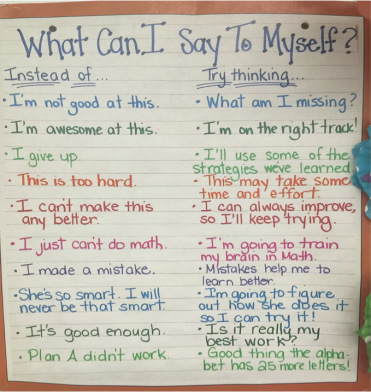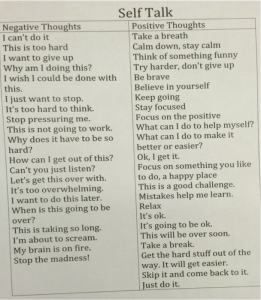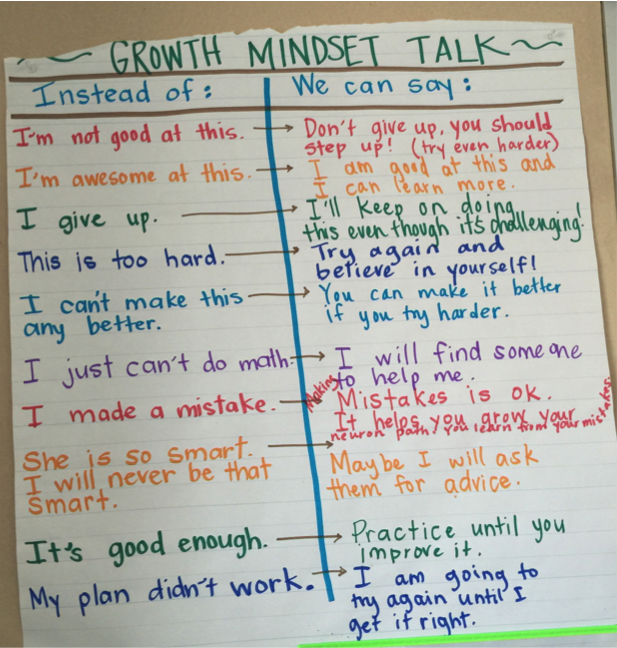Last week we welcomed Marc Brackett, Director, and Robin Stern, Associate Director, of the Yale Center for Emotional Intelligence back to The Willows. In their talk to parents and the larger community, they reminded us of research findings that show children in schools today experience higher levels of anxiety than their parents. While there are myriad potential causes for this anxiety, one cause that is especially present this time of year is standardized testing taking place in schools. 
According to the Anxiety and Depression Association of America, children suffering from anxiety related to taking standardized tests typically present three main categories of symptoms:
- Physical symptoms, often resembling those related to a panic attack, including headaches, nausea, diarrhea, excessive sweating, shortness of breath, rapid heartbeat, and light-headedness
- Emotional symptoms, including feelings of anger, frustration, fear, helplessness, and disappointment
- Behavioral/cognitive symptoms, including difficulty concentrating, thinking negatively and comparing yourself unfavorably to others
At The Willows, challenges like these make us feel more grateful than ever for our burgeoning partnership with Yale and the RULER program for emotional intelligence that we are implementing in our community. In order to address these concerns straight on, specifically with our youngest test takers in third through fifth grades, the members of our Willows RULER team recently met with our Upper Elementary teachers.
Due to two to three teachers in a classroom, Willows teachers are able to meet regularly during the school day at our monthly Learning Lunches, where DK-8 faculty are invited to meet, watch, and discuss a video on a topic relevant to our professional practice and break bread together (often with colleagues who teach in separate buildings and rarely see each other.)
For this particular lunch, rather than watch a video and then discuss potential applications for our different classroom settings, we began with an open forum led by RULER team trainer and 5th grade teacher Alex Wolfe, who asked everyone to begin by sharing strategies they’ve used over the years to mitigate student test anxiety.
All teachers emphasized the need to impart to students specific and concrete strategies to use when anxiety begins to rear its ugly head during testing, such as:
- Don’t spend too long on one question
- Skip certain questions and come back to them at the end
- For questions that require written responses, don’t leave them blank (even if you have no idea how to respond – anything written can be scored!)
- Use positive self-talk and mindful breathing
(See below for links to more specific strategies and tips)

Certain teachers also shared related posters they already have on display in their classroom for their students. Alex shared that one particular piece of advice she tells children is that these kinds of tests are designed so that some questions are hard and some are easy, so if you don’t answer one correctly it’s ok, because usually no one answers all the questions correctly.
 Particular attention was given throughout the discussion on how best to help our 3rd graders, who are facing the standardized testing experience for the first time. Many teachers acknowledged the need to strike a fine balance when talking to these students about testing; it’s our job to simultaneously convey that on one hand they need to take the test seriously but also try to regulate their stress as well.
Particular attention was given throughout the discussion on how best to help our 3rd graders, who are facing the standardized testing experience for the first time. Many teachers acknowledged the need to strike a fine balance when talking to these students about testing; it’s our job to simultaneously convey that on one hand they need to take the test seriously but also try to regulate their stress as well.
Christina Kim, our Director of Student Life and leader of the school’s RULER team, shared that it’s important for children to recognize that standardized tests can be thought of as a different genre that we all need to be able to comprehend. Like other texts, it has certain structures and conventions that are predictable, and just like we would with any project or assignment, we all simply must try to do our best.
Christina also shared some related posters photographed on our recent school visit to High Tech High. I felt that all teachers present left our lunch meeting empowered to help students navigate the wide range of emotions that arise during test taking.

For more information on test taking anxiety please visit:
https://childmind.org/article/tips-for-beating-test-anxiety/
https://www.iecaonline.com/PDF/IECA_Library_Test-Anxiety.pdf

Thank you for writing this very informative article.
When you get nervous & stressed during a test, you are physically tensing up your body and unable to control it. Mindfulness practices, such as meditation, are a great way to release tension & performance anxiety.
“Mindful Test Taking” combines mindfulness with visualization to clear out stress-based patterns that inhibit circulation & blood flow. We teach our students how to progressively relax, so they can show up on test day feeling calm & focused.
http://www.MindfulTestTaking.com offers individual mindfulness coaching & group classes over videoconference & in-person to students who feel nervous about taking tests.
LikeLike
Thank you for this post! There is definitely a connection between test anxiety & physical tension in the body. Tension blocks the flow of blood and prevents emotions from moving through the body in a healthy way.
Tension & poor circulation accompanies negative thoughts & uncomfortable feelings. Positive thoughts & pleasurable feelings are correlated to physical relaxation and improved blood flow.
Teaching students somatic-based mindfulness practices that improve their “relaxation muscle” has been very effective in enhancing focus & composure under pressure.
When visualization of a testing scenario is combined & incorporated with a mindfulness exercise, students can reduce their test anxiety before test day even arrives, similar to how gently exposing people to the source of their phobia can help them overcome it.
LikeLike